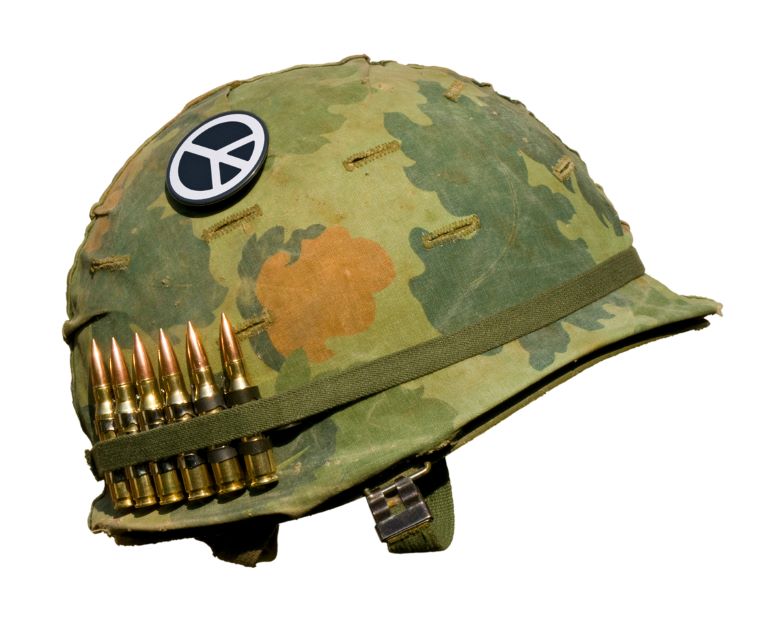“A good dose of a badass Sam Elliott never hurts.”
Highly politicized as the Vietnam War was, it generated some of the best war films to date with many of them earning critical acclaim.
The challenging topic of the war itself must be considered as the war was characterized as “unpopular” and created a domestic uproar in the U.S. at the time. Few directors were willing or able to tackle the content initially, but once the dam was broken, we were treated to some of the great films of the good, the bad, and the ugly aspects of soldiers’ lives in the “Nam.”
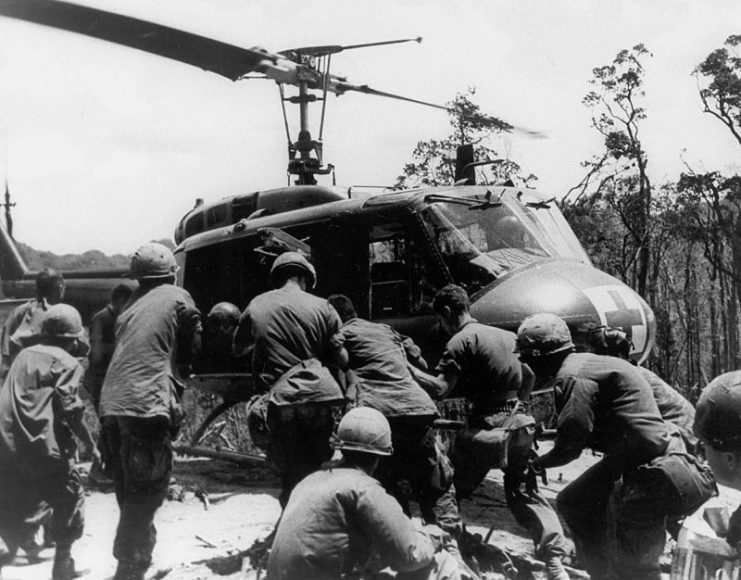
The rising pro-military and national pride that existed in the 1980’s under the Reagan administration certainly generated a demand amongst audiences to re-evaluate and reflect on the Vietnam era.
Soldiers who were once spit on and called “baby killers” were suddenly and appropriately celebrated for their heroism during the conflict. These soldiers did their duty often with the intention of defending the American way of life, but most commonly out of their commitment to their fellow soldiers.
This list is certainly not exhaustive, but rather my selections are based on the impact they had on audiences, culture, and their attempt to portray the realities of war during the conflict.
I heard it once commented during the making of Band of Brothers that war films at best get usually get about 12% right and that the mini-series was aiming for 18%.
With that in mind, there are tons of historical inaccuracies amongst my list of films here. The great and knowledgeable readers of WHO will certainly have some differing opinions, but my list is based on the following criteria:
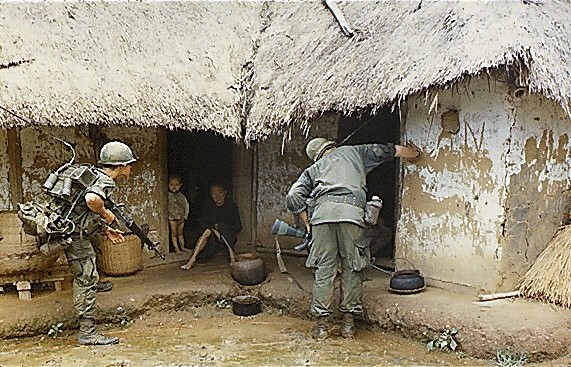
1. Great Story – Fact or fiction, was the story exciting and engrossing? Therefore, no documentaries such as Hearts and Minds are listed.
2. Realism – Were the capabilities, consequences, and unit actions believable? This eliminated quite a few from my list such as Siege of Firebase Gloria.
3. Balanced – Did the film find a balance between the Good and the Bad of those portrayed? Too much incompetence of leadership like Boys in Company C, or ridiculousness that undervalues the efforts of Vietnam vets, were also eliminated from my list.
4. Timeframe – Did the events portrayed take place during the conflict? Hence, no films like Rambo, Uncommon Valor, or Missing in Action are included. Additionally, films like Coming Home and Born on the 4th of July that focus on the aftermath of the war, despite their merits, also didn’t make the list.
5. Lastly, my list only includes films shot from a largely American combat perspective. There are a great many films on the era and many stories told, but my list focuses on combat films and this eliminates exceptional dramas like The Deer Hunter and Rescue Dawn.
Number 5 – Hamburger Hill
Centered on a single unit within the 101st Airborne’s 3rd Brigade, the film has some gritty action sequences throughout, but focuses most prominently on the assault of Hill 937 in Vietnam near the Laotian border. Those that fought there would name it “Hamburger Hill.”
In the film, the assaulting forces take huge losses as the hill is well fortified with trenches, tunnels, and the natural advantage of elevated defense. The unit goes up the hill a multitude of times, taking casualties with each new attack, until they finally reach the top having eliminated all North Vietnamese resistance.
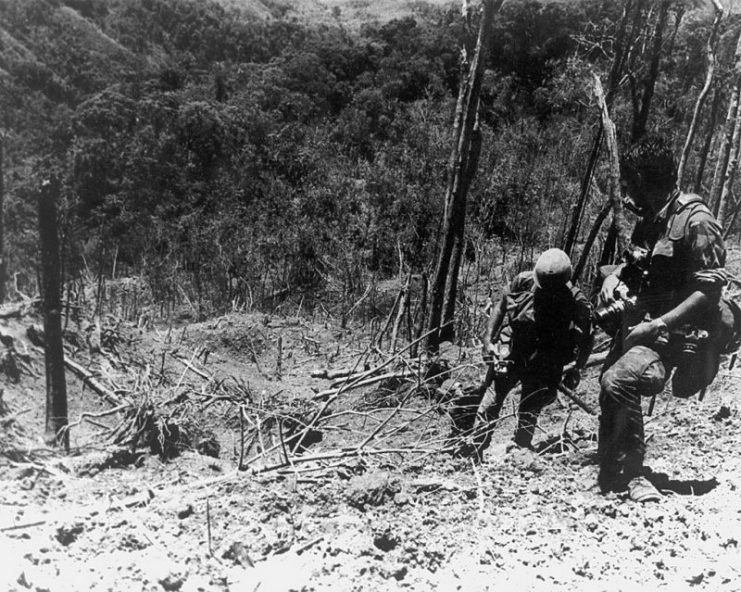
The story captures some of the essence of the conflict such as the burnt out hill after repeated napalm and white phosphorous attacks as well as snippets of the cultural and racial themes both in the “Nam” and “Back in the World.”
The film opened at number 5 at the box office, but despite the good effort it remained in the shadow of my next selection, which was also released in 1987.
Number 4 – Full Metal Jacket
Stanley Kubrick entered the Vietnam War genre in 1987 as well with Full Metal Jacket, to critical acclaim and an Academy Award nomination for adapted screenplay.
The movie has become one of the iconic war films of any era and brought a plethora of household phrases and characters into pop culture. From the colorful “Me love you long time” to the hyper-literal “How do you shoot women and children? Easy, you just don’t lead them as much” lines, audiences were mesmerized by the dialogue.
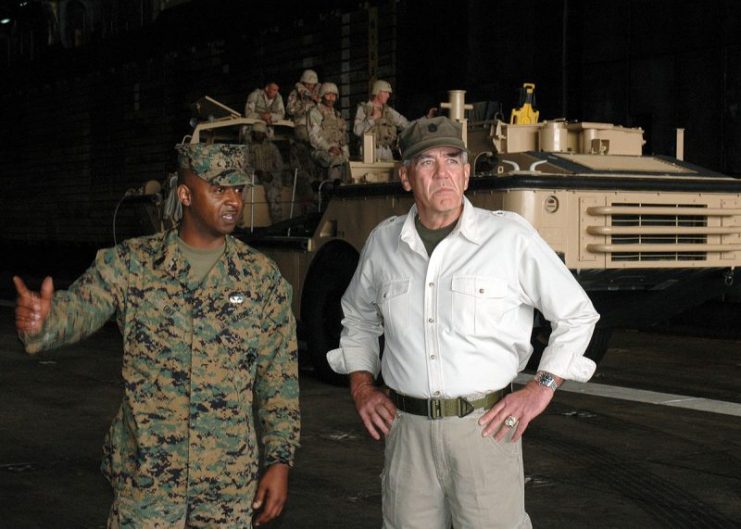
For many moviegoers, this was their first dose of R. Lee Ermey and his no-nonsense approach and rapid-fire insults as the drill sergeant at Parris Island. Ermey cemented himself as the common vision of what we think of when we hear the words “boot camp.”
Some might say that FMJ should be higher on my list, but as much as I loved Kubrick’s offering of boot camp, his understanding of what troops were capable of in combat was remedial. One example is the scenario of one sniper against over a dozen heavily armed soldiers with tons of cover, and they become instant idiots? Not believable.
![“Returning Fire: Marines A Company, 1st Battalion, 1st Marines [A/1/1] fire from a house window during a search and clear mission in the battle of Hue (official USMC photo by Sergeant Bruce A. Atwell).”](https://www.warhistoryonline.com/wp-content/uploads/sites/64/2019/03/marines_fire_from_a_house_window_february_1968_16242259837_cropped-741x510.jpg)
“Returning Fire: Marines A Company, 1st Battalion, 1st Marines [A/1/1] fire from a house window during a search and clear mission in the battle of Hue (official USMC photo by Sergeant Bruce A. Atwell).”
Number 3 – Apocalypse Now
While Apocalypse Now is a Vietnam film, to me it transcends specific wars and has a bigger and more important picture to paint for the audience. This is probably its greatest trait as a film/art and its greatest weakness as a war/combat film.
Francis Coppola assembled an all-star cast for his 1979 effort that included mainstays like Marlon Brando, Dennis Hopper, and Martin Sheen, but it also features younger versions of Harrison Ford and Lawrence Fishburne.
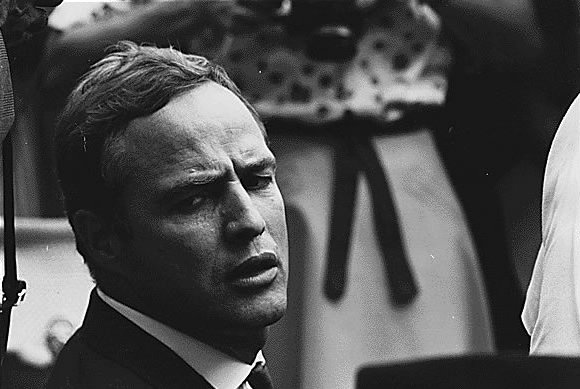
The combat sequences are exciting and fairly realistic. However, we are treated to a bit of the absurd such as Robert Duvall’s character ordering an assault on an enemy position by his Air Cav unit for the express reason that it has great waves for surfing.
Luckily, we are treated to the iconic phrase, “I love the smell of napalm in the morning.” That alone almost makes up for the absurdity of Duvall’s character.
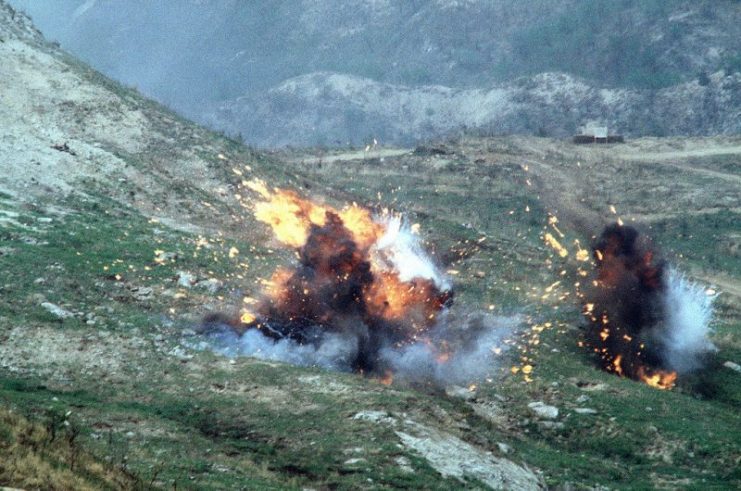
Sheen’s character narrates us through Coppola’s dark and chaotic vision of the war with an emphasis on themes like the insanity of war, futility, and a lack of competent guidance in Vietnam.
Perhaps the greatest message of the film is uttered near the end when Brando’s character, Col. Kurtz, records the message: “We train young men to drop fire on people, but their commanders won’t allow them to write F*** on their airplanes because it’s obscene.”
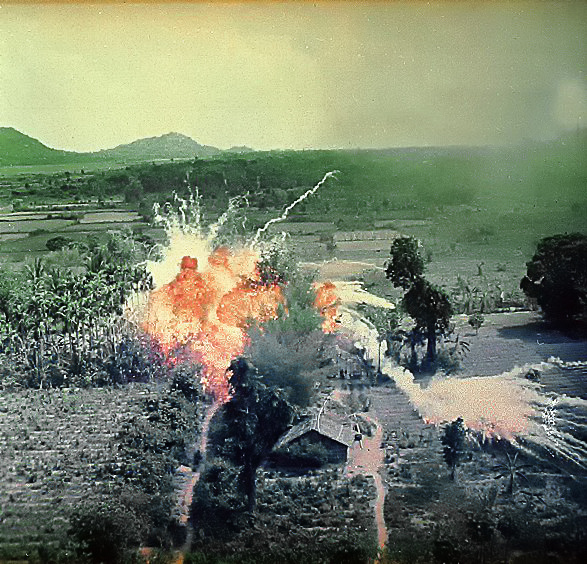
Number 2 – We Were Soldiers
Based on real events but with a fair dose of Hollywood license, We Were Soldiers is a great combat film with quality character development and brutal imagery. The film tells the story of Colonel Hal Moore, played by Mel Gibson, and a battalion of the U.S. 7th Air Cavalry in the Battle of Ia Drang Valley in November of 1965.
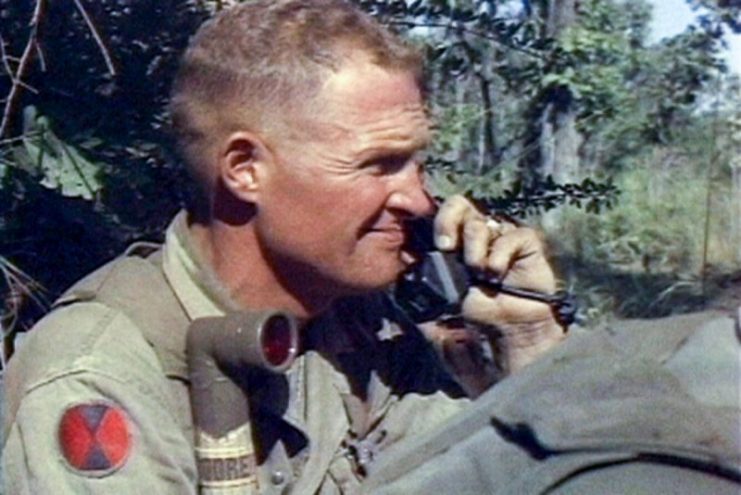
The film covers many aspects of the operation including a trapped platoon, North Vietnamese Army (NVA) tactics and adjustments, and the U.S. capabilities and execution of their Air Cav doctrine. The fact that the film was released in 2002 allowed for improved special effects and realism.
Some have criticized it for being “overly sentimental,” but I see it as being very well balanced in regards to leadership, combat execution, and the humanity of the characters. Of course, a good dose of a badass Sam Elliott never hurts.
The real battle pitted a small U.S. force of roughly 400 soldiers against an NVA force of around 4,000. Backed by artillery, air strikes, and helicopter evac/resupply, the forces under Moore’s command withstand the enemy onslaught racking up a 10:1 kill ratio.
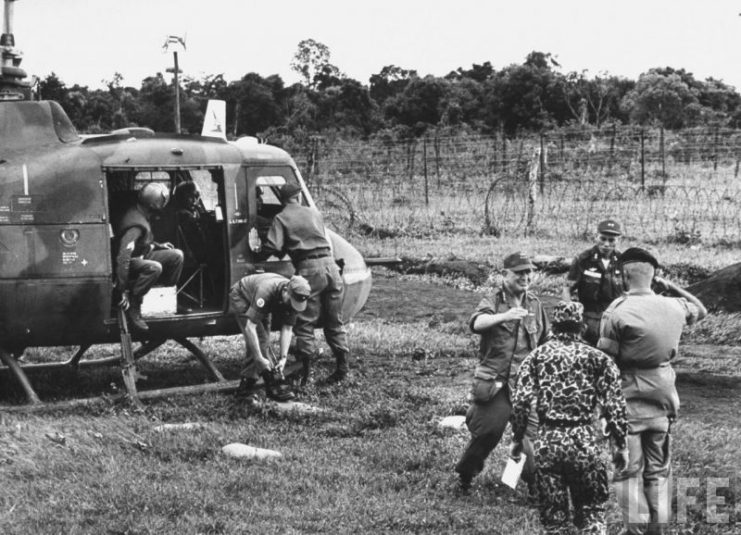
Ultimately, the film ends with a U.S. “victory,” but the region is reoccupied by the NVA days after the U.S. forces withdraw from the area.
Number 1 – Platoon
This won’t come as a shock to most readers. Oliver Stone put together a fantastic film that chronicles a platoon of American soldiers deployed near the Cambodian border in Vietnam. It is lightly based on Stone’s own experience in Vietnam and the director went to great lengths to try and capture the conflict realistically.
Ironically, Charlie Sheen – Martin’s son – narrates the film through letters home to his grandmother. A mostly young and untested cast that would go on to become Hollywood sensations accompanies him. These include Johnny Depp and Forest Whitaker, but the ensemble is anchored by Tom Berenger and Willem Dafoe.
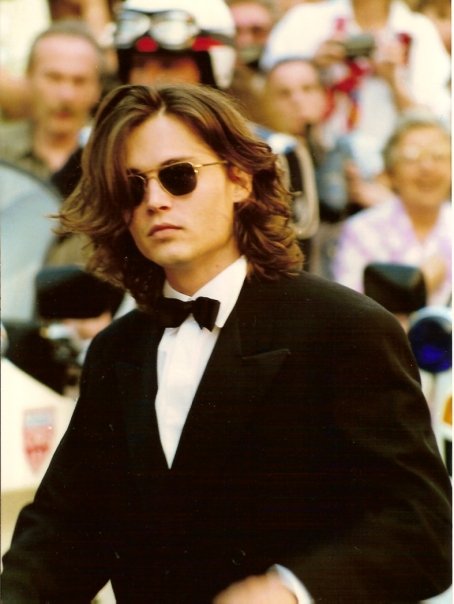
Fans of the HBO mini-series Band of Brothers get a glimpse of Dale Dye who plays Captain Harris, but who also trained the cast members in a “boot camp” immediately prior to the filming and worked as an advisor on the set.
The action scenes are realistic enough and the language and culture give the film a great deal of authenticity. Following the release of the film in December 1986, many Vietnam veterans were vocal in their support of the film and the portrayal of the characters.
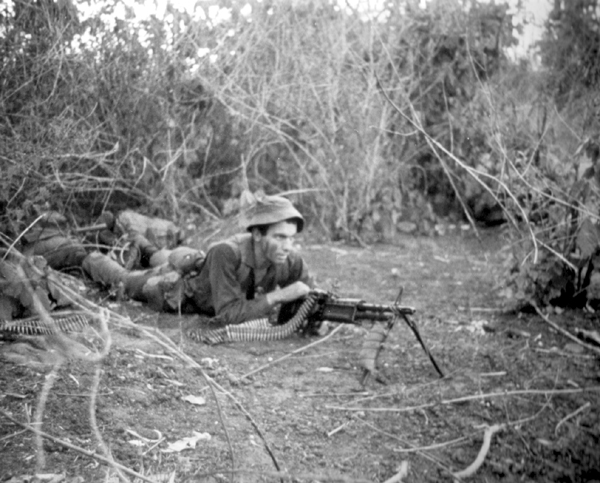
Read another story from us: Did You Know? 10 Cool Movie Facts About Platoon
Platoon did extremely well at the box office, and garnered eight Academy Award nominations and won four including Best Picture. Public interest in the Vietnam War grew substantially in the following years and certainly the film inspired many people, like myself, to engross themselves in the literature of the conflict.
How does my list compare to yours? Is there a film that belongs here that I’m missing? If you’re reading this through a social media link, let me know your answers in the comments.
